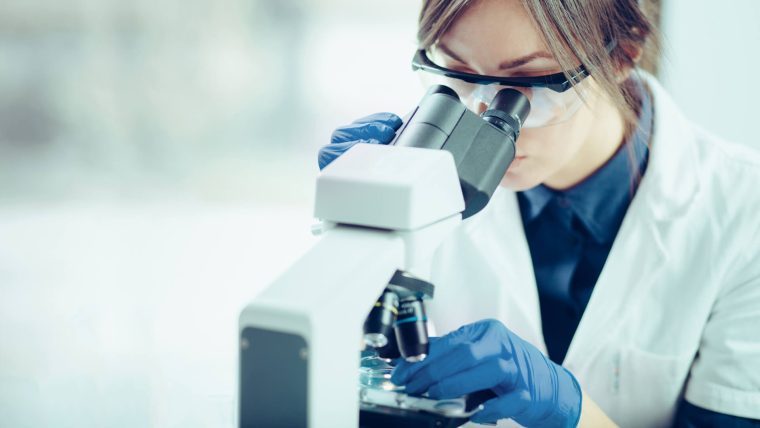| Rank | School | Location |
|---|---|---|
| 1 | University of New Haven | West Haven, Connecticut |
| 2 | Pennsylvania State University-Main Campus | University Park, Pennsylvania |
| 3 | University of Pittsburgh-Bradford | Bradford, Pennsylvania |
| 4 | West Virginia University | Morgantown, West Virginia |
| 5 | Columbia College | Columbia, South Carolina |
| 6 | Michigan State University | East Lansing, Michigan |
| 7 | Florida International University | Miami, Florida |
| 8 | Arizona State University-Tempe | Tempe, Arizona |
| 9 | Texas A & M University-College Station | College Station, Texas |
| 10 | Long Island University | Brookville, New York |
| 11 | Temple University | Philadelphia, Pennsylvania |
We have ranked the best Forensic Science Colleges as a guide for students interested in a forensic science major program. These programs include bachelor's and master's degrees. Students interested in attending forensic science schools can study many different forensic science programs with many forensic science major options.
Forensic Science colleges offer bachelor's degree programs and master's degree programs in computer forensics, crime scene investigation, forensic chemistry, and forensic accounting to name a few undergraduate and graduate degree options.
Our ranking of the Top Forensic Science colleges is for students to make informed college and degree decisions. These forensic science schools offer bachelor's and master's degrees in Forensic Science.
The most successful forensic science students get accredited forensic science degrees from the best forensic science colleges. A Forensic science career usually requires at least a bachelor's degree.
At its core, a Forensics program gives students the scientific tools necessary to approach solving crimes in various roles. Graduates learn sharp analytical skills in scientific investigations. Forensic and investigative sciences can be applied across many fields, such as crime scene investigation and forensic biology.
A Forensic Science degree may open doors to many career paths. Forensic Scientists work within fields such as:
- Digital Forensics
- Crime Scene Investigation
- Forensic Accounting
- Forensic Psychology
Schools may download our badge.
The 11 Best Forensic Science Colleges
National Center for Education Statistics data and academic influence makes the rank order. For more method information see our College Denominator.
University of New Haven
West Haven, Connecticut

The University of New Haven offers a wide range of degrees. This program is one of the most comprehensive in the nation. The Bachelor's degree and Master's degree programs have full accreditation by the Forensic Education Program Accreditation Commission.
Students learn from faculty who have worked for the CIA, FBI, local and state police departments, and the United Nations.
Students also can study in the world-renowned, state of the art Henry C. Lee Institute for Forensic Science. The institute features working crime scene labs.
The Bachelor of Science in Forensic Science helps students sharpen their powers of observation and learn to interpret evidence. This is one of the first forensic programs in the nation.
The Master of Science in Forensic Science provides students with practical and theoretical knowledge to apply scientific methods to criminal investigation.
Pennsylvania State University-Main Campus
University Park, Pennsylvania

Within the Bachelor of Science in Forensic Science program, students will gain a solid understanding of criminalistics, which is the application of science to court cases and investigations. The emphasis of the course can be either Biology or Chemistry. Crime scene investigation, forensic chemistry, and forensic biology will all be covered.
As part of the degree, students will also learn about how forensics works within the legal system. Graduates may find a job in fields such as forensics labs or in organizations such as insurance or homeland security after completing the program.
In addition, students may pursue advanced degrees in medicine, psychology, or law as a way to continue their education.
University of Pittsburgh-Bradford
Bradford, Pennsylvania
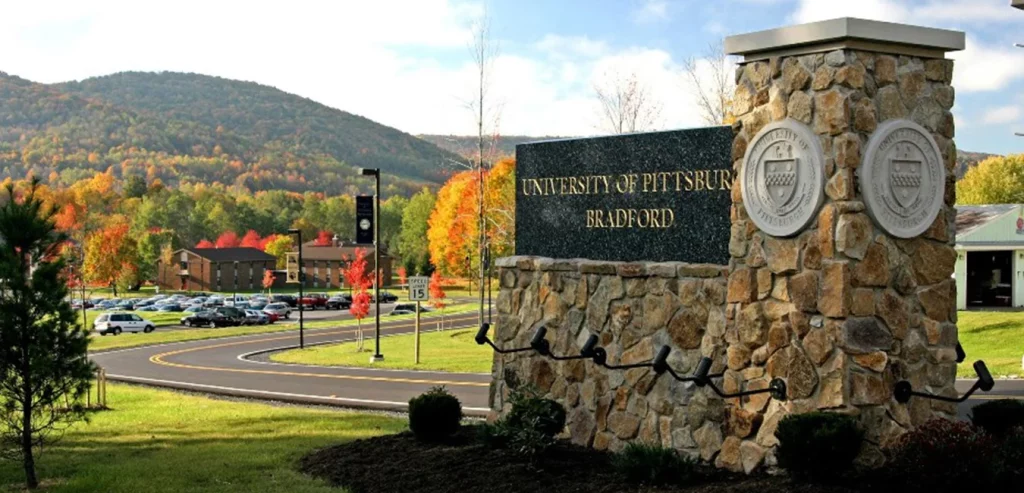
The Bachelor of Science in Forensic Science introduces students to the operation of police agencies and the courts. Students also learn forensic investigation. The major includes coursework in chemistry, biology, and mathematics.
Students must complete a concentration in either chemistry or biology.
Through work in the Crime Scene Investigation House, students analyze hair, drugs, fiber and DNA for the senior capstone project.
The program prepares graduates for careers in industry and government labs as well as labs.
Courses include:
- Introduction to Forensic Science
- Criminal Evidence/Investigation
- Criminal Forensics I and II
West Virginia University
Department of Forensic and Investigative Science (FIS)
Morgantown, West Virginia

WVU is one of the best forensic science colleges. WVU has an important affiliation with the FBI (Federal Bureau of Investigation), setting it apart from other programs. WVU offers three forensic science programs within the Bachelor of Science degree. The three forensic science degree options are:
- Bachelor of Science in Forensic Chemistry
- Bachelor of Science in Forensic Biology
- Bachelor of Science in Forensic Examiner
A major in Forensic Chemistry focuses on the analysis of trace evidence in laboratory settings, with a particular emphasis on combustion residues and drugs. Analytical and instrumental chemistry coursework is required.
DNA and bodily fluids are analyzed in a lab in the Forensic Biology major. Advanced courses in microbiology, molecular biology, and genetics are required to be completed.
The Forensic Examiner major focuses on best practices in investigating crime scenes and forensic analysis, including the analyses of patterns and trace evidences at crime scenes. Various forensic specialties will be covered, such as fingerprint analysis and photography.
WVU also offers the Masters in Forensic and Investigative Sciences.
The bachelor's and master's programs have full accreditation by the Forensic Education Programs Accreditation Commission.
Ranking Methodology
The main factor is academic influence in independent research. Academic influence is calculated by the scientific writing of alumni and faculty in professional publications and their citations.
We then concentrated on colleges that have undergrad and graduate programs. We looked at forensic science laboratories, crime scene training facilities, and what the majors are offered.
Forensic Science degree programs offer many different subjects, including:
- molecular biology
- forensic biology
- chemistry
- digital forensics
- criminal law
- criminology
- toxicology
- computer forensics
- blood splatter
- ballistics
- handwriting analysis
- forensic anthropology
- crime scene photography
- crime lab technician
- forensic examiner
- crime scene investigation
Undergraduate students may learn these forensic science knowledge and methods and more.
Students interested in a forensic science program may decide they want a specialization. The specialization may help determine which degree to pursue. There are many degree programs across the nation to study forensic science. The justice system and other law enforcement agencies all use forensics.
Columbia College
Columbia, South Carolina

Columbia College offers the Bachelor of Arts in Criminal Justice with a Forensic Concentration.
Offered both on-campus and online, students are taught a broad foundation in criminal justice, and a focused understanding of forensics.
Students gain knowledge of criminological theory, leadership, ethics, analyzing evidence, and the court and criminal justice system.
Courses in the Forensics concentration include:
- Forensic Toxicology with Lab
- Forensic DNA with Lab
- FBI Fingerprint Recognition and Comparison
Columbia also offers an online Master of Arts in Criminal Justice.
Michigan State University
School of Criminal Justice
East Lansing, Michigan
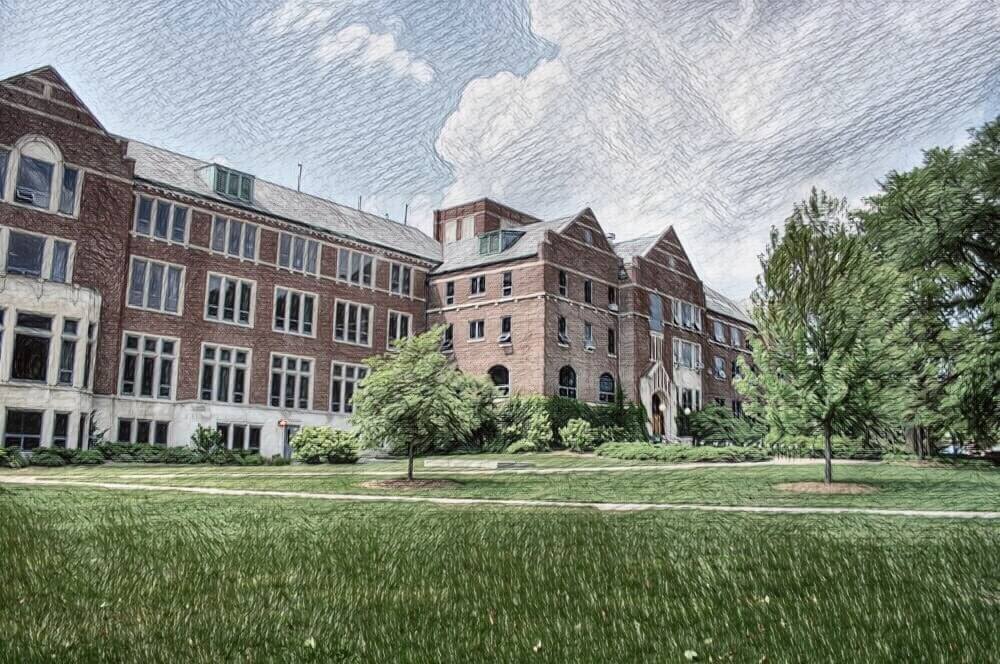
Michigan State University has a long history as a premier forensic science university. It combines a legacy of leadership with cutting-edge education and research.
The Master of Science in Forensic Science has courses in forensics, law, and an emphasis on forensic chemistry.
Throughout the program, students complete research including an independent project that features a written thesis and oral defense.
Students receive funding to present their research at national and local conferences, and are encouraged to complete internships.
Florida International University
Global Forensic and Justice Center, International Forensic Research Institute
Miami, Florida

Florida International University is a leading institution in Forensic Science research and instruction.
Since 2018 their Global Forensic and Justice Center (GFJC) has been engaging in forensic science teaching and research to provide a more just society.
The GFJC combines the 25-year-success of the National Forensic Science Technology Center (NFSTC) and the International Forensic Research Institute (IFRI) for a comprehensive and collaborative approach to addressing real-world gaps in education, training, research, and applied sciences. GFJC serves as the incubator for the NIJ-funded Center for Advanced Research in Forensic Science (CARFS).
FIU offers the Professional Science Master's degree in Forensic Science.
This 16-month program teaches students management skills and professional instruction in the forensic and investigative sciences. Online courses are available for students who work full time and cannot attend on-campus instruction.
Credits: 33 credits total. 24 credits are forensic science instruction, and nine credits are online and focus on professional business instruction. These nine online business classes are through the College of Business Administration.
Courses include:
- Forensic Chemistry
- Chemistry & Analysis of Drugs
- Organizational Behavior
- Forensic Biology
- Leadership & Decision Making
This program includes an internship capstone. This program includes an internship capstone. Accredited by the Forensic Science Education Programs Accreditation Commission.
Arizona State University-Tempe
School of Criminology and Criminal Justice, ASU Online
Tempe, Arizona

The Online Professional Science Master’s in Forensic Science (PSM) program prepares those who work in forensic science for career advancement. The program provides students with a pathway to develop competencies related to laboratory supervision.
Course topics include botany, toxicology, forensic DNA, and ethics.
Students also complete an applied project at the end of the program.
The University also offers a Certificate in Criminal Investigations. This certificate focuses on aspects of criminal investigations and criminalistics. The program provides students with an understanding of forensic sciences, in these competencies:
- nature of criminal evidence
- the language of forensic science
- the scope of investigative specializations and techniques
Required courses include:
- Introduction to Criminal Investigations
- Introduction to Criminal Justice
- Procedural Criminal Law
- Documenting the Crime Scene
Students also can gain real-world experience by completing an internship.
Texas A & M University-College Station
College Station, Texas
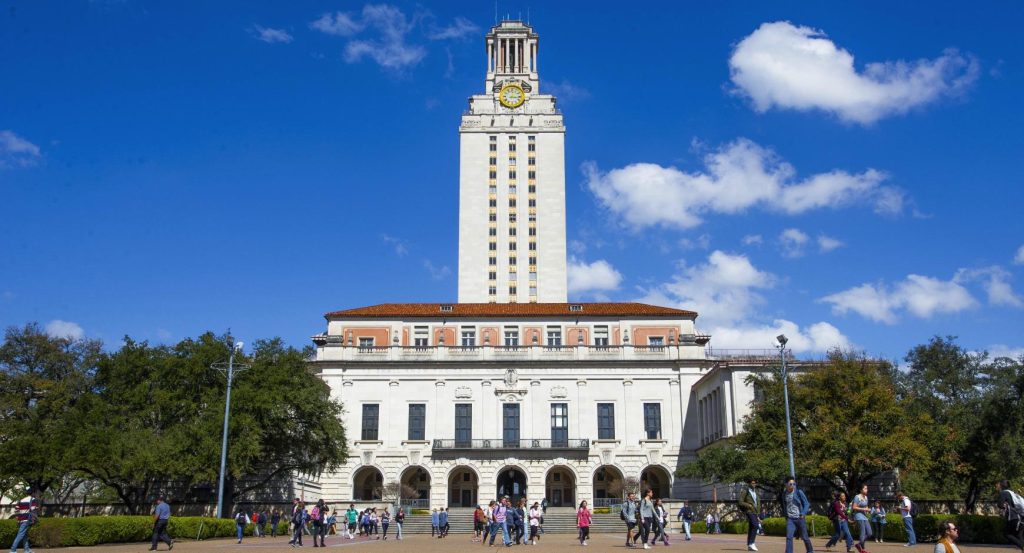
Texas A&M University offers the BS in Forensic and Investigative Sciences. This program teaches students to use life sciences in the analysis of crime scene evidence within industries and the medical industry.
Students have the option of focusing either on Science (FEPAC accredited) or on Pre-Law (not FEPAC accredited). FEPAC stands for Forensic Science Education Programs Accreditation Commission.
Students in this program will learn to collect, preserve, process, and analyze evidence using state-of-the-art technologies.
This program is one of just two that are accredited by the Commission on Accreditation of Forensic Science Education Programs in the state of Texas.
Long Island University
College of Liberal Arts and Sciences
Brookville, New York

LIU Post’s Bachelor of Science in Forensic Science degree program combines lectures with laboratory instruction and field training.
Students learn a broad range of forensic applications, which include:
- Forensic anthropology
- Criminalistics
- Molecular pathology
- Human genetics
Taught by practicing forensic scientists, medical professionals and LIU Post professors, courses include:
- Introduction to Criminalistics
- Toxicology
- Forensic Anthropology
- Forensic Molecular Techniques
- Criminal Procedure
Temple University
College of Science and Technology
Philadelphia, Pennsylvania
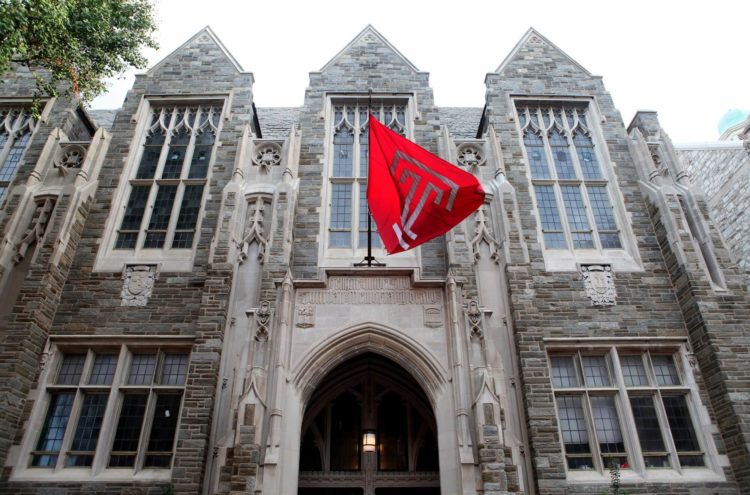
The College of Science and Technology offers a Professional Science Master’s in Forensic Chemistry.
Students become familiar with the scientific methods used to detect, examine and process non-biological trace evidence to identify unknown materials.
Students are also familiarized with the legal and the scientific aspects of forensic chemistry and gain conceptual knowledge and practical skills.
Course topics include:
- analytical and forensic chemistry
- applied biopharmaceutics
- data analysis
- ethics
- law
- toxicology
Students gain skills at seminars facilitated by leaders in forensic chemistry. Students also gain hands-on experience through the onsite forensic chemistry laboratory.
Students can complete an independent study project and an internship.
The university also houses the Temple University Forensics Organization, which introduces students to the field of forensic science. Club members also take trips to the Philadelphia Crime lab, where they can network with professionals in the field.
What is the highest paid job in forensics?
Salaries can vary depending on experience and level of education. Here are a number of high paying jobs:
- Forensic Pathologists make an average national salary of $177,686 per year.
- Digital Forensic Examiners make $96,785 for the national average salary. They are responsible for extracting, analyzing, and presenting digital evidence from computers, mobile devices, and other digital storage media.
- Forensic Medical Examiners make an average median salary of $96,133.
- Forensic Engineers make an average salary nationally of $89,306 per year.
- DNA Analysts make an average national salary of $57,173 per year.
- Crime lab analyst: average national salary of $61,739 per year.
What Does a Forensic Science Technician do?
A forensic science technician analyzes and interprets physical evidence found at crime scenes or during investigations using scientific methods. DNA analysis, fingerprint analysis, ballistics analysis, and toxicology testing are among the techniques they use to analyze evidence. They usually work in a laboratory.
A forensic analyst might be employed by forensic laboratories, a criminal justice organization, or other law enforcement agencies.
What degree do Forensic Science Technicians need?
The minimum level of education required is usually an associate degree in forensic science or a related subject. However, many employers prefer applicants with a bachelor's degree in forensic science, biology, chemistry, or a related subject. Some entry-level positions may only require a high school diploma or equivalent, but these positions often involve more limited tasks such as evidence processing, and not analysis of evidence.
The level of education required for forensic science technicians can vary depending on the employer, the type of job, and the level of responsibility. It's recommended to have some experience in forensic science laboratories, coursework in the natural sciences, and some computer and math skills.
Some forensic scientist technicians may choose to obtain certifications in specific areas of forensics, such as crime scene investigation. This can help demonstrate their expertise and increase their chances of employment.
More resources:
- The Best Online Bachelor's in Forensic Psychology Degree Programs
- The Best Online Forensic Psychology Master's Programs
- The Best Online Master's in Forensic Science Degree Programs
- The United States Department of Justice - Forensic Science
- The Best College Degrees for Fighting Human Trafficking
- The Best Universities Fighting Human Trafficking
- The Best Online Social Justice Degrees
- Criminal Justice Degree: The 50 Best Programs
- The Best Online Criminal Justice Schools
- The Best Digital Forensics Master's Degrees Online
- The Best Graduate Criminology Programs
- The Fastest Criminal Justice Degree: Online Bachelor's Programs
Frequently Asked Questions
What Is Forensic Science?
Forensic science utilizes science to aid in law enforcement. Forensic scientists and forensic science technicians work to provide unbiased, impartial, scientific evidence professionals can use in courts and investigations.
Forensic science, a multidisciplinary field, utilizes information acquired from a wide array of fields and disciplines such as chemistry, physics, biology, psychology, information technology, geology, as well as the social sciences.
Forensic scientists primarily work in crime laboratories. A crime laboratory typically includes units such as a Physical Science unit, a Biology unit, a Firearms unit, a Document unit, and a Photographic unit. A crime laboratory may provide additional services such as fingerprint analysis, voiceprint analysis, toxicology, and evidence collection.
What Do Forensic Scientists Do?
A forensic scientist performs tests and evaluates evidence and provides reports and/or expert testimony in a court of law. Many are employed in crime laboratories, some of them may collect evidence at crime scenes. For example, a forensic chemist evaluates non-biological evidence discovered at crime scenes to identify unknown materials and match samples to known substances. A forensic biologist typically specializes in DNA analysis. A forensic geologist provides soil analysis to crime investigations.
How do you become a Forensic Scientist?
Scientists typically need a bachelor's degree, such as forensic science or a science degree including chemistry, biology, and physics. There are many forensic science degree programs available. If you want to become a Crime Scene Investigator, it would perhaps be beneficial to get a degree in an investigative sciences program, such as Crime Scene Investigation. Students may also want to take courses in math, statistics, biostatistics, genetics, and general and organic chemistry, as well as courses which provide writing skills.
What Do You Study in a Forensic Science Program?
Forensic science students can study the following fields:
- Ballistics
- Chemical Trace Evidence
- Computer Forensic Examination
- Criminalistics
- Criminal Investigation
- Digital & Multimedia Sciences
- DNA Profiling
- Drug Analysis
- Facial Identification
- Fingerprints
- Firearms and Toolmarks
- Fire Debris & Explosives Analysis
- Forensic Anthropology
- Forensic Biology
- Molecular biology
What Are Some Forensic Science Careers?
Many scientists work in forensic science crime laboratories. The United States, has over 4000 crime laboratories administered by federal, state, or local governments or private industry. Many crime laboratories employ scientists in the areas of forensic chemistry, forensic biology and criminalistics. They often perform this work in close collaboration with law enforcement agencies.
Forensic Pathologists do autopsies on victims to assess the reason for dying. Forensic Science Technicians work in crime labs analyzing the evidence collected from crime scenes. Forensic Toxicologists look at the chemistry of people who have passed away to assess the use of chemicals, drugs, or poisons. Crime scene investigation involves determining what happened in the crime. Crime scene investigators will collect evidence, analyze physical evidence, including trace evidence analysis.
DNA Analysts help to analyze and connect DNA evidence to crime suspects. Here are some forensic science careers outside of the crime laboratory: Forensic Anthropology, Forensic Engineering, Forensic Entomology, Forensic Odontology, Forensic Pathology, and Forensic Psychiatry.
What Government Agencies Hire Forensic Scientists?
Government agencies that hire include the Bureau of Alcohol, Tobacco, Firearms, and Explosives, Federal Bureau of Investigation, Drug Enforcement Administration, Armed Forces DNA Identification Laboratory, U.S. Department of Justice, Central Intelligence Agency, U.S. Secret Service, U.S. Postal Inspection Service Headquarters, State Crime Labs/State Police Departments, Coroner Offices, Medical Examiner Offices, and Law Enforcement Offices.
Do Law Enforcement Officers or Federal Agents Need To Have a Forensic Science Degree?
Typically no. Most law enforcement agencies at the local, state, or federal levels require a four-year degree of some type, but not specifically a forensic science degree.
What are Major Forensic Science Certifications?
The major Forensic Science Certifications are the American Board of Forensic Document Examiners, which offers the Forensic Document Examiner certification, The American Board of Forensic Toxicology provides a certification program in forensic toxicology, The American Board of Criminalistics provides certification, The International Association for Identification offers several certifications, and Forensic Science Technicians.
What Are Some Forensic Science Agencies?
Professional organizations in Forensic Science include:
- American Academy of Forensic Sciences
- Society of Forensic Toxicologists, Inc.
- American Forensic Association
- American Board of Criminalists
- Chartered Society of Forensic Sciences
- International Association of Computer Investigative Specialists
- International Society of Forensic Computer Examiners
- International Association of Identification
It's important to find a forensic science degree program that is accredited by The Forensic Science Education Programs Accreditation Commission. This forensic science accreditation is granted to programs that have met their standards of education.
